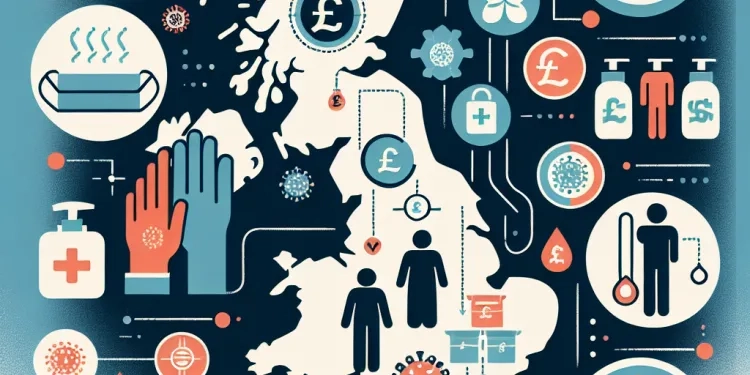
Find Help
More Items From Ergsy search
-

What public health measures are important for managing the plague?
Relevance: 100%
-

Can the bubonic plague be prevented?
Relevance: 55%
-

What is Bubonic Plague?
Relevance: 54%
-

How was the bubonic plague controlled historically?
Relevance: 53%
-

Are there vaccines for the bubonic plague?
Relevance: 51%
-

How can the bubonic plague be treated?
Relevance: 50%
-

What is the bubonic plague?
Relevance: 50%
-
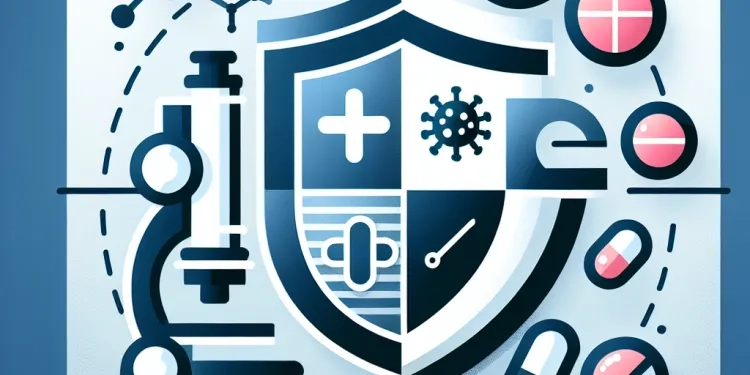
Can the bubonic plague become resistant to antibiotics?
Relevance: 47%
-

How is the bubonic plague transmitted?
Relevance: 47%
-

What advancements have been made in understanding the bubonic plague?
Relevance: 44%
-

Is the bubonic plague contagious between humans?
Relevance: 43%
-
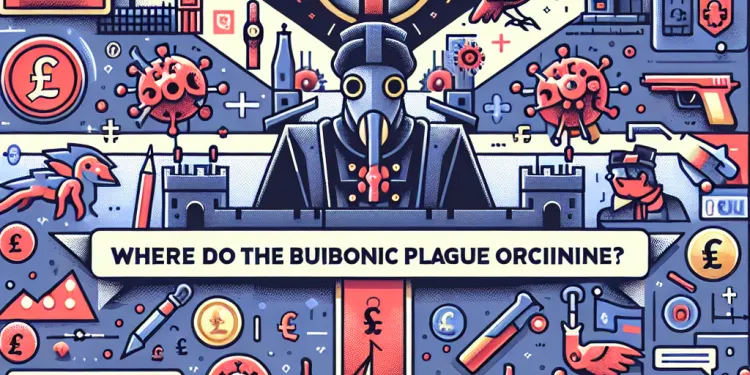
Where did the bubonic plague originate?
Relevance: 41%
-
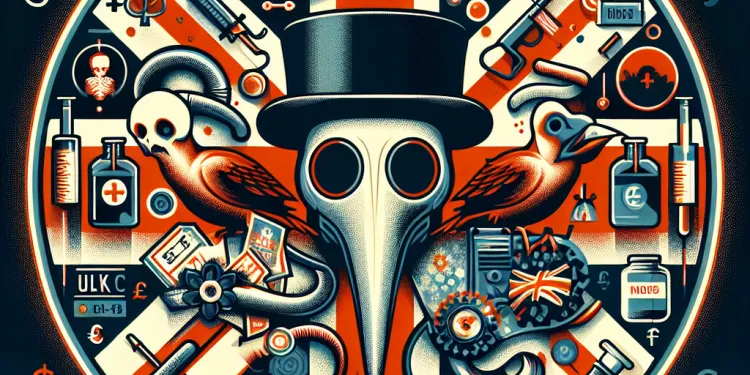
What historical event is the bubonic plague known for?
Relevance: 40%
-
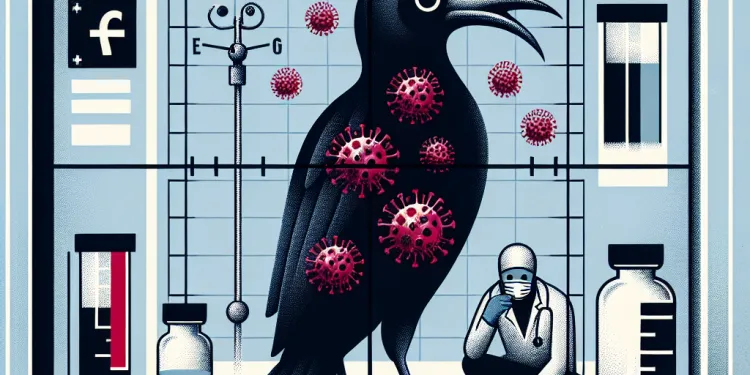
What are the symptoms of the bubonic plague?
Relevance: 40%
-

Did the bubonic plague affect only Europe?
Relevance: 40%
-

What is a public health funeral?
Relevance: 39%
-

What is the mortality rate of untreated bubonic plague?
Relevance: 39%
-
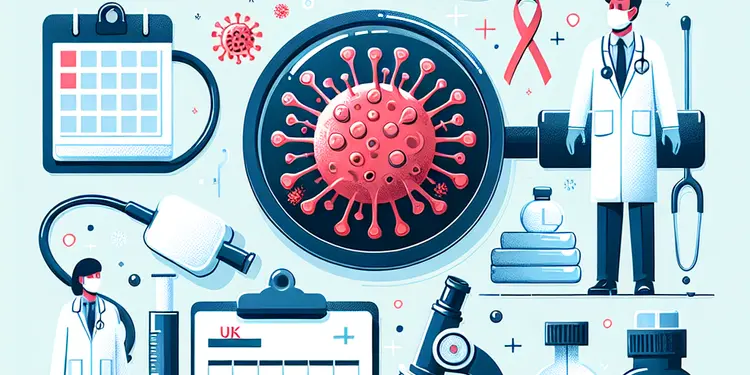
What role do public health measures play in controlling the flu season?
Relevance: 38%
-

What role do public health organizations play in managing Super Flu?
Relevance: 36%
-

Are there modern outbreaks of bubonic plague?
Relevance: 34%
-

How does sewage pollution affect public health?
Relevance: 34%
-

How does the sugar tax align with public health strategies?
Relevance: 32%
-
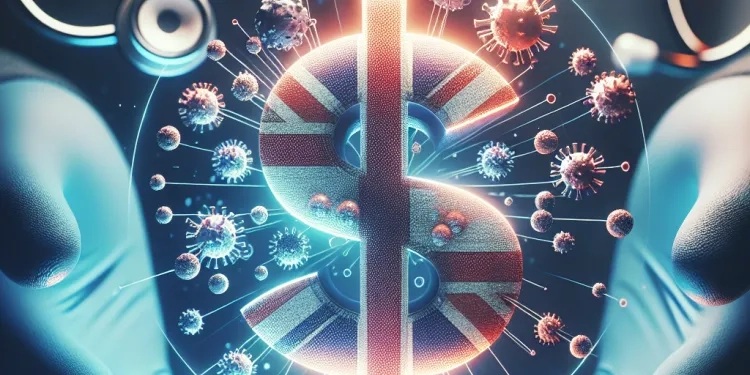
Why are Nipah Virus outbreaks considered a public health concern?
Relevance: 32%
-
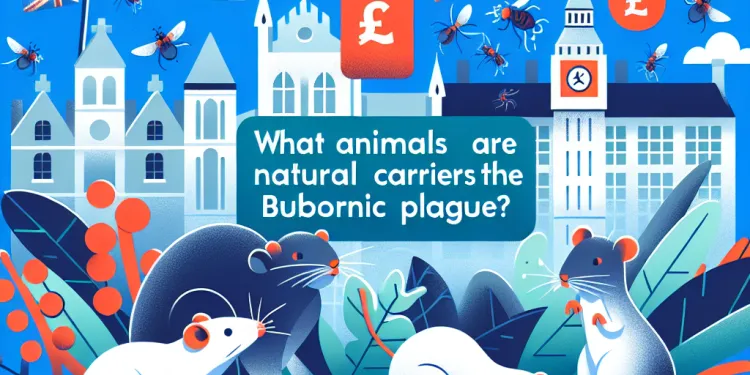
What animals are natural carriers of the bubonic plague?
Relevance: 32%
-

What impact does leaving WHO have on US public health policy?
Relevance: 30%
-

How is obesity measured?
Relevance: 29%
-

What measures are being taken to control Marburg virus outbreaks?
Relevance: 29%
-

What measures are taken during a screw worm outbreak?
Relevance: 28%
-

How are pollen counts measured?
Relevance: 28%
-

Do hosepipe bans apply to public parks and gardens?
Relevance: 26%
-

Can GLP-1 levels be measured?
Relevance: 26%
-

Is there a difference in responsibility between public and private land?
Relevance: 26%
-

What measures are being taken to address water loss in the UK?
Relevance: 25%
-

Seven Reaasons For Measuring blood pressure
Relevance: 25%
-

Can cortisol levels be measured?
Relevance: 25%
-

Is public safety a consideration in indefinite sentencing?
Relevance: 25%
-

Why is there a call for public consultation regarding the cuts?
Relevance: 24%
-
Are there preventative measures for eating disorders?
Relevance: 24%
-

Is it safe to use public Wi-Fi to check my email?
Relevance: 24%
-

How do health authorities confirm a Marburg virus outbreak?
Relevance: 24%
Introduction to the Plague
The plague is a serious infectious disease caused by the bacterium Yersinia pestis. It is typically transmitted to humans through the bites of infected fleas that reside on small mammals, and can also spread from human to human through respiratory droplets. While the plague is no longer as deadly as it was in historical pandemics, it remains a concern due to its potential for outbreaks.
Early Detection and Surveillance
One critical public health measure for managing the plague is the early detection of cases. This requires robust surveillance systems to quickly identify and confirm human cases, as well as monitor animal populations that could harbor the bacteria. In the UK, this involves maintaining communication with international health authorities, such as the World Health Organization (WHO), and using data from other regions to stay informed about potential threats.
Quarantine and Isolation
Quarantine and isolation are essential tools for managing the spread of the plague. Once a potential case is identified, rapid isolation of the patient is necessary to prevent transmission. This applies especially to the pneumonic form of the plague, which is highly contagious. Quarantine measures may also be imposed on those who have been in contact with confirmed cases to prevent further spreading.
Vector Control
Since the plague is typically transmitted through flea bites, controlling the vector population is a crucial public health measure. This can include the use of insecticide treatments to reduce flea populations, as well as efforts to manage rodent populations that act as hosts. Public health campaigns can also educate communities on effective pest control measures to minimize the risk of infection.
Vaccination and Antibiotic Prophylaxis
While there is currently no widely used vaccine against the plague, ongoing research may yield new preventive treatments. In the meantime, antibiotic prophylaxis is an effective measure to protect those who have been exposed to the bacterium. Prompt medical treatment with antibiotics is critical for those who have contracted the disease, as it can significantly reduce the risk of serious outcomes and fatalities.
Public Education and Communication
Public education is vital in managing the plague, as it ensures that the population is informed about the risks and the steps they can take to protect themselves. This includes recognizing the symptoms of the plague, such as fever, chills, and swollen lymph nodes, and knowing when to seek medical attention. Health officials should also provide clear communication during outbreaks to prevent misinformation and panic.
Conclusion
Effective public health measures are essential for managing the threat of the plague. Through early detection, quarantine and isolation, vector control, medical interventions, and public education, the spread of the disease can be minimized. Health authorities in the UK must remain vigilant and prepared to respond to potential outbreaks to protect public health.
What is the Plague?
The plague is a very serious sickness. It is caused by tiny germs called Yersinia pestis. People usually get it from flea bites. Fleas live on small animals. People can also catch it from other people if they cough or sneeze. Today, the plague is not as deadly as in the past, but we still need to be careful because it can cause outbreaks.
Finding the Plague Early
It is important to find cases of the plague early. This helps stop the sickness from spreading. To do this, we use systems to watch for new cases in people. We also check animals to see if they carry the germs. In the UK, we talk to health groups like the World Health Organization. We use their information to know if there is a risk.
Keeping Sick People Away from Others
When someone might have the plague, they need to be kept away from others. This helps stop the spread of the sickness. This is very important for the type of plague that spreads through coughing. People who have been near someone sick might also need to stay away from others for a while.
Stopping Fleas
Since fleas spread the plague, we need to control them. We can use special sprays to kill fleas. We also need to control rats and mice because fleas live on them. Health groups teach people how to keep their homes free of pests.
Medicine and Research
Right now, there is no common vaccine for the plague, but scientists are working on it. Until then, people who might have touched the germs can take special medicine called antibiotics. If someone gets sick, these antibiotics can help them get better quickly.
Teaching and Talking
It is important to teach people about the plague. This helps everyone know what to do to stay safe. People should know the signs, like fever, chills, and swollen bumps. They should see a doctor if they feel sick. Health groups must give clear information, especially if there is an outbreak, to stop wrong ideas and fear.
Summary
We need strong health measures to keep the plague from spreading. By finding it early, keeping sick people away, controlling fleas, using medicine, and teaching the public, we can manage the risk. The UK must stay ready to handle outbreaks to keep everyone safe.
Frequently Asked Questions
What is the primary method for controlling the spread of the plague?
Controlling the rodent population and reducing human exposure to fleas are primary methods for managing the spread of the plague.
How can public health organizations educate the public about plague prevention?
Public health organizations can educate through campaigns that inform about symptoms, transmission, and preventive measures such as avoiding contact with wild rodents.
Why is surveillance important in managing plague outbreaks?
Surveillance helps to identify and monitor outbreaks quickly, allowing for timely intervention to prevent further spread.
What role do antibiotics play in managing the plague?
Antibiotics are critical in treating individuals infected with the plague to reduce the severity and spread of the disease.
How can sanitation be improved to manage the spread of the plague?
Improving sanitation involves proper waste disposal, cleanliness to reduce rodent habitats, and discouraging rodent entry into homes.
What are some personal protective measures individuals can take against the plague?
Avoiding areas with known outbreaks, using insect repellent to prevent flea bites, and wearing long-sleeved clothing are effective personal protective measures.
Is there a vaccine available for the plague?
As of now, there is no widely available vaccine for the general public, but research and development are ongoing.
How important is early diagnosis for managing plague cases?
Early diagnosis is crucial for effective treatment and reducing mortality, as well as for limiting the spread to others.
What environmental management strategies can be implemented to control the plague?
Strategies include habitat modification, reducing food sources for rodents, and using pesticides to control flea populations.
How do quarantines help in managing the plague during an outbreak?
Quarantines help to isolate those infected and prevent the spread of the disease to healthy populations.
Why is coordination with animal health organizations important in managing the plague?
Animal health organizations help monitor and control outbreaks in rodent and other animal populations, which are often the source of human infections.
What public health infrastructure is essential for managing the plague?
Essential infrastructure includes laboratories for testing, healthcare facilities for treatment, and public health units for outbreak management.
How do travel advisories assist in controlling the spread of the plague?
Travel advisories can warn people about areas with active outbreaks, reducing the likelihood of disease spread through travel.
What role do flea control measures play in managing the plague?
Controlling flea populations is critical as they are primary vectors for transmitting the plague from rodents to humans.
How does community engagement influence the effectiveness of plague control measures?
Community engagement is vital as it ensures local adherence to public health recommendations and enhances disease awareness and preventive behavior.
What is the significance of international cooperation in controlling the plague?
International cooperation facilitates the sharing of research, resources, and strategies, enabling a more efficient global response to plague outbreaks.
How can technology aid in managing plague outbreaks?
Technology can assist through advanced data analysis, tracking outbreaks via GIS, and efficient communication of public health alerts.
What is the importance of having an effective public health communication strategy during a plague outbreak?
An effective communication strategy ensures timely and accurate information is disseminated to the public, helping to reduce panic and misinformation.
How can healthcare systems prepare for potential plague outbreaks?
Healthcare systems can prepare by training staff on diagnosis and treatment, ensuring stockpiles of antibiotics, and developing response protocols.
What measures can be taken to protect healthcare workers during a plague outbreak?
Measures include providing appropriate personal protective equipment, training on infection control, and ensuring vaccination if available.
How can we stop the plague from spreading?
The plague is a very serious illness. Here are some easy ways to help stop it from spreading:
- Wash Your Hands: Keep your hands clean by washing them with soap and water.
- Stay Away from Sick People: If someone is sick, try not to be close to them.
- Use Medicine: Doctors can give you special medicine to help keep you safe.
You can use pictures or videos to help you learn more. Ask someone you trust if you have questions.
To stop the plague from spreading, we need to do two things:
1. Keep control of the number of mice and rats.
2. Help people stay away from fleas.
Here are some ways to help with this:
- Set traps for mice and rats.
- Make sure your home is clean and tidy.
- Use bug spray to keep fleas away.
- Wear long-sleeved clothes.
- If you don't understand something, ask a grown-up or teacher to help you learn more.
How can health groups teach people to stay safe from the plague?
Public health groups can help people learn how to stay safe from the plague. Here’s how they can do it: 1. **Easy Words and Pictures**: Use simple words and pictures to explain what the plague is and how to avoid it. 2. **Videos and Games**: Make videos and fun games that show how to stay clean and spot the signs of plague. 3. **Stories and Songs**: Tell stories and sing songs that talk about the plague and how to protect yourself. 4. **Workshops and Fun Days**: Organize fun days where kids and families can learn together about staying safe. 5. **Apps and Online Tools**: Use apps and online tools to remind people about washing hands and staying away from sick animals. 6. **Teachers and Helpers**: Train teachers and community helpers to spread the word in schools and neighborhoods. By using these fun and easy ways, everyone can learn how to stay safe from the plague.Health groups can help people learn by sharing messages. These messages tell us how to spot signs of sickness, how it spreads, and how to stay safe, like not touching wild rats.
Why do we need to watch carefully for plague?
Watching carefully helps us stop the spread of plague.
When we know where plague is, we can help people not get sick.
Listening to the news can help you learn more.
Watching and checking is important. It helps find when a lot of people get sick. This way, we can help stop it from spreading.
How do antibiotics help with the plague?
Antibiotics are very important medicines. They help people who have the plague. Antibiotics make people feel better and stop the disease from spreading to others.
How can we keep clean to stop the spread of the plague?
Here are some ideas to help:
- Wash Hands: Clean hands with soap and water often.
- Use Clean Water: Drink and use safe, clean water.
- Keep Places Clean: Remove trash and keep places tidy.
- Wear Masks: Use masks to stop germs.
- Listen to Experts: Follow advice from doctors and health experts.
Tools to help:
- Pictures and Signs: Use pictures to remind people to wash hands.
- Soap and Sanitizer: Keep soap and hand sanitizer handy.
- Posters: Put up posters to show how to keep clean.
To keep things clean and safe, we need to: throw away rubbish the right way, stay clean to make rats less likely to live nearby, and stop rats from getting into our houses.
How can people keep themselves safe from the plague?
The plague is a serious illness. But there are ways to stay safe.
Here are some things you can do:
- Wash your hands often with soap and water.
- Avoid touching wild animals.
- Stay away from places with lots of rats.
- Watch out for fleas. Use bug spray if needed.
- If you feel sick, go to the doctor immediately.
It can help to use pictures or ask someone to explain if you need help understanding this.
To stay safe, do not go to places where there are a lot of sick people. Use bug spray to stop fleas from biting you. Wear clothes with long sleeves to cover your arms.
Can you get a vaccine for the plague?
Right now, there is no vaccine for everyone to use. But, scientists are working to make one.
Why is it important to find out about plague early?
Finding out about plague early helps doctors treat people faster. If doctors know someone has plague, they can give medicine quickly. This can help make people feel better sooner.
If you feel sick, tell a grown-up or a doctor right away. They can help you get the right care. It's good to ask questions and talk about how you feel.
Using aids like pictures, videos, or asking a helper can make it easier to understand information and talk to doctors.
Finding out about the illness early is very important. It helps doctors give good treatment and save lives. It also stops the illness from spreading to more people.
How can we care for the environment to stop the plague?
Here are some simple ways to help:
- Keep places clean.
- Get rid of rubbish.
- Make sure water is clean.
- Watch for signs of the plague early.
Tools to help:
- Use posters and pictures for reminders.
- Ask for help from friends or family.
Here are some easy ways to stop the spread of fleas:
- Change places where fleas might live.
- Take away food that mice and rats like.
- Use sprays to kill fleas.
How does staying away from others help stop the spread of the plague?
When people stay away from others, it can help stop the plague from spreading.
Here is how staying away from others helps:
- If you are sick, you won't make others sick by staying at home.
- If you stay away from crowds, germs can't move from one person to another.
- Doctors and nurses can take care of sick people better when germs do not spread fast.
It is important to wash your hands, wear a mask, and follow rules to stay safe.
Tools like picture cards or videos can help understand what to do when staying away from others.
Quarantines keep sick people away from others. This stops the disease from spreading to healthy people.
Why is it important to work with animal health groups to manage the plague?
Working with animal health groups is important because:
- They help keep animals healthy.
- Healthy animals mean fewer chances of spreading the plague.
- They share important information to stop the plague.
Ask for help from a grown-up or use a dictionary if you find some words difficult. You can also use pictures or videos to learn more.
Groups that take care of animals watch over them and keep them healthy. They make sure that rats and other animals do not make people sick. They help stop the spread of diseases from animals to people.
What do we need to stay healthy during the plague?
We need places like hospitals and clinics.
Doctors and nurses help care for sick people.
We need clean water to drink and wash with.
Keeping our hands and homes clean stops germs.
It's important to share good information to keep safe.
Helpful tools:
- Use pictures to show how to wash hands.
- Watch videos about staying healthy.
- Use simple words when explaining things.
Important buildings and places are needed to help people stay healthy. These include:
- Labs: Places where tests are done to find out if someone is sick.
- Hospitals and Clinics: Places where doctors and nurses help people get better.
- Health Centers: Places that help stop diseases from spreading to a lot of people.
How do travel warnings help stop the spread of the plague?
Travel warnings tell people about places where the plague is.
These warnings help people know where it might be risky to go.
When fewer people travel to these places, the plague can spread less.
Listening to travel warnings keeps everyone safer.
Travel warnings can help people know where there are diseases. This can stop the disease from spreading when people travel.
How do flea control measures help stop the plague?
Getting rid of fleas is very important. Fleas can carry a disease called the plague from animals like mice or rats to people.
How do people working together help stop the spread of plague?
When people in a community work together, they can help stop diseases like the plague. It's important for everyone to understand and follow the rules to keep safe.
- Listen to News: Hear the latest updates from trusted sources.
- Learn the Rules: Know what to do to keep germs away.
- Help Each Other: Remind friends and family to stay safe and clean.
Working together makes it easier to stay healthy and stop the spread of germs.
It's important for people in the community to work together. This helps everyone follow health advice, learn about diseases, and take steps to stay healthy.
Why is it important for countries to work together to stop the plague?
Countries working together share research, tools, and plans. This helps them fight the plague better and faster all around the world.
How can technology help us control plague outbreaks?
Technology can help. It looks at data to find patterns, watches for illness with maps, and shares health updates quickly.
Why is it important to share health information well during a disease outbreak?
It is important to tell people how to stay safe during a disease outbreak. This helps stop the disease from spreading. Good information can help people know what to do and stay calm.
Using pictures, simple words, and videos helps everyone understand. You can also use things like social media and TV to reach more people.
Good communication means sharing the right information at the right time. This helps people stay calm and know the truth.
How can healthcare get ready for plague outbreaks?
Here is how we can get ready:
- Have a plan: Make a simple plan to follow if plague happens.
- Gather supplies: Keep important medicines and tools ready.
- Train people: Teach doctors and nurses what to do.
- Share information: Tell people how to stay safe and what to do.
Here are some tools that might help:
- Pictures and videos: Use these to understand better.
- Apps: Try health apps that give easy tips.
- Friends: Talk to someone you trust for help.
Healthcare systems can get ready by doing a few things:
1. Teach workers how to find and treat illnesses.
2. Make sure there are enough antibiotics (medicine to fight germs).
3. Create plans for what to do in an emergency.
Use pictures and simple charts to help explain these points. You can also use apps that read out text loud to make reading easier.
How can we keep healthcare workers safe during a plague?
Here are some ways to help:
- Give them special clothes and masks to wear.
- Wash hands often with soap and water.
- Have training on how to stay safe.
- Make sure they have vaccines if needed.
Use pictures and videos to help learn these tips.
We can stay safe by doing a few important things.
First, wear the right safety gear, like gloves and masks.
Next, learn how to stop germs from spreading.
Also, get your shots if there are any.
Here are some tips to help you:
- Ask a grown-up if you need help putting on your safety gear.
- Wash your hands often.
- Use pictures and videos to learn about germs.
- Ask someone to explain anything you don’t understand.
Useful Links
This website offers general information and is not a substitute for professional advice.
Always seek guidance from qualified professionals.
If you have any medical concerns or need urgent help, contact a healthcare professional or emergency services immediately.
- Ergsy carfully checks the information in the videos we provide here.
- Videos shown by Youtube after a video has completed, have NOT been reviewed by ERGSY.
- To view, click the arrow in centre of video.
- Most of the videos you find here will have subtitles and/or closed captions available.
- You may need to turn these on, and choose your preferred language.
- Go to the video you'd like to watch.
- If closed captions (CC) are available, settings will be visible on the bottom right of the video player.
- To turn on Captions, click settings .
- To turn off Captions, click settings again.
More Items From Ergsy search
-

What public health measures are important for managing the plague?
Relevance: 100%
-

Can the bubonic plague be prevented?
Relevance: 55%
-

What is Bubonic Plague?
Relevance: 54%
-

How was the bubonic plague controlled historically?
Relevance: 53%
-

Are there vaccines for the bubonic plague?
Relevance: 51%
-

How can the bubonic plague be treated?
Relevance: 50%
-

What is the bubonic plague?
Relevance: 50%
-

Can the bubonic plague become resistant to antibiotics?
Relevance: 47%
-

How is the bubonic plague transmitted?
Relevance: 47%
-

What advancements have been made in understanding the bubonic plague?
Relevance: 44%
-

Is the bubonic plague contagious between humans?
Relevance: 43%
-

Where did the bubonic plague originate?
Relevance: 41%
-

What historical event is the bubonic plague known for?
Relevance: 40%
-

What are the symptoms of the bubonic plague?
Relevance: 40%
-

Did the bubonic plague affect only Europe?
Relevance: 40%
-

What is a public health funeral?
Relevance: 39%
-

What is the mortality rate of untreated bubonic plague?
Relevance: 39%
-

What role do public health measures play in controlling the flu season?
Relevance: 38%
-

What role do public health organizations play in managing Super Flu?
Relevance: 36%
-

Are there modern outbreaks of bubonic plague?
Relevance: 34%
-

How does sewage pollution affect public health?
Relevance: 34%
-

How does the sugar tax align with public health strategies?
Relevance: 32%
-

Why are Nipah Virus outbreaks considered a public health concern?
Relevance: 32%
-

What animals are natural carriers of the bubonic plague?
Relevance: 32%
-

What impact does leaving WHO have on US public health policy?
Relevance: 30%
-

How is obesity measured?
Relevance: 29%
-

What measures are being taken to control Marburg virus outbreaks?
Relevance: 29%
-

What measures are taken during a screw worm outbreak?
Relevance: 28%
-

How are pollen counts measured?
Relevance: 28%
-

Do hosepipe bans apply to public parks and gardens?
Relevance: 26%
-

Can GLP-1 levels be measured?
Relevance: 26%
-

Is there a difference in responsibility between public and private land?
Relevance: 26%
-

What measures are being taken to address water loss in the UK?
Relevance: 25%
-

Seven Reaasons For Measuring blood pressure
Relevance: 25%
-

Can cortisol levels be measured?
Relevance: 25%
-

Is public safety a consideration in indefinite sentencing?
Relevance: 25%
-

Why is there a call for public consultation regarding the cuts?
Relevance: 24%
-
Are there preventative measures for eating disorders?
Relevance: 24%
-

Is it safe to use public Wi-Fi to check my email?
Relevance: 24%
-

How do health authorities confirm a Marburg virus outbreak?
Relevance: 24%


